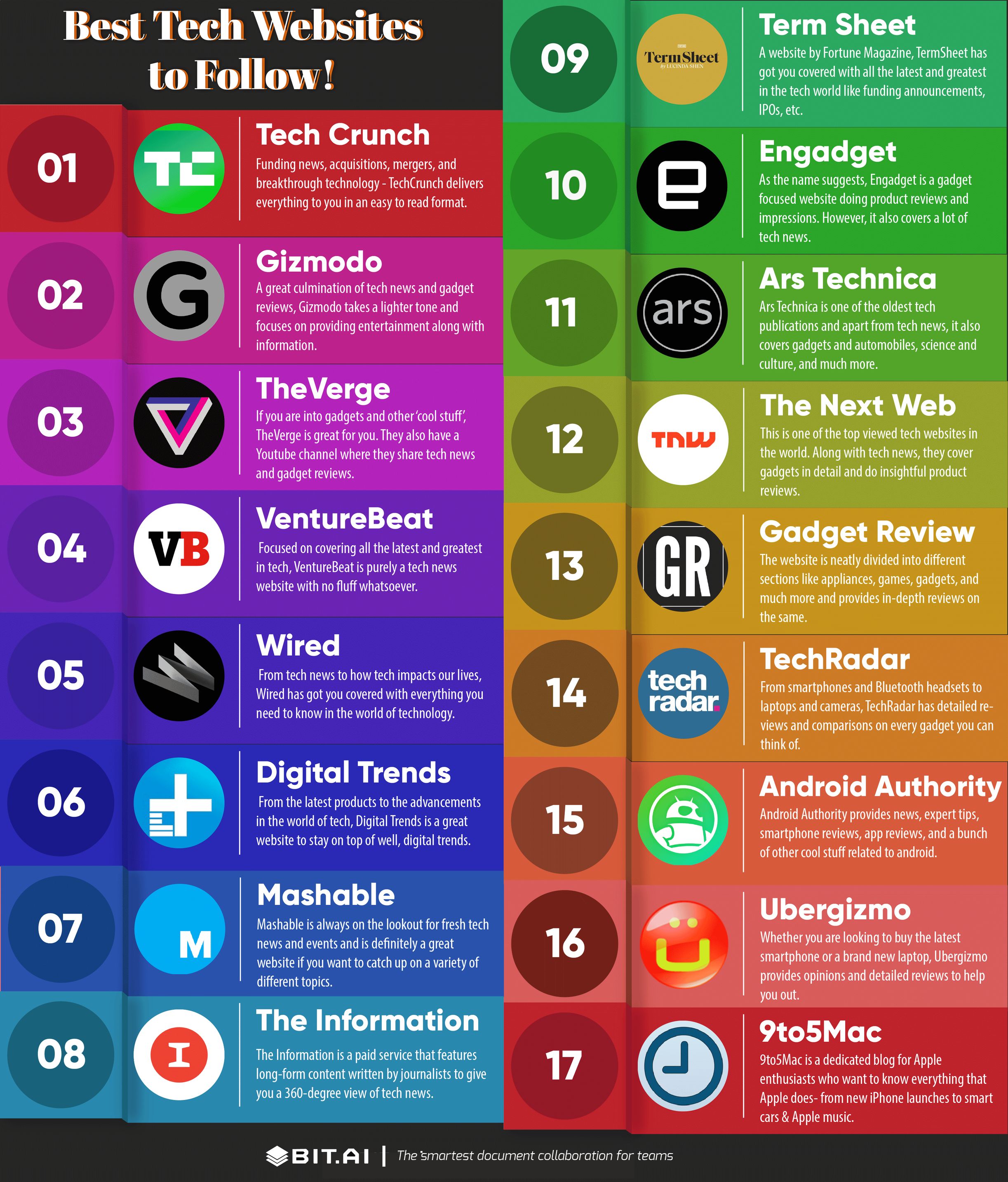Leading Reasons to Follow the Best tech blog for Tech News and Tutorials
Leading Reasons to Follow the Best tech blog for Tech News and Tutorials
Blog Article
How Blockchain Innovation Is Revolutionizing Information Security
Blockchain technology is essentially changing the landscape of information protection by presenting a decentralized framework that promises enhanced transparency and durability. Unlike conventional systems, which depend on central data repositories, blockchain disperses information across a network, lessening susceptabilities and single points of failure. Using innovative cryptographic techniques guarantees that information continues to be tamper-proof, promoting count on among individuals and stakeholders. As sectors rapidly adjust to this technology, questions emerge concerning its more comprehensive influence and potential difficulties. What effects does this change hold for future data protection techniques and regulative frameworks? The solutions might shock you (Best tech blog).
The Essentials of Blockchain
Blockchain technology, an innovative principle in electronic data administration, basically changes how details is stored and protected. At its core, a blockchain is a distributed ledger that tapes deals across a network of computer systems, ensuring transparency and immutability.
Secret to comprehending blockchain is the hashing procedure, which encrypts purchase information right into a distinct alphanumeric code. This cryptographic feature makes certain that any kind of alteration in the transaction information results in a completely different hash, thus safeguarding versus tampering. The agreement device, one more crucial component, verifies and confirms new deals through a network of nodes, thereby removing the requirement for a central authority.
In addition, blockchain's append-only framework makes sure that information, once added, can not be removed or modified. This characteristic assurances a irreversible and verifiable record of purchases, cultivating trust fund amongst participants. As an outcome, blockchain offers a durable structure for data stability, providing industries a trusted technique for tracking and managing digital details in a safe and secure, transparent way.
Decentralization and Safety
Decentralization, a core concept of blockchain technology, considerably boosts information safety and security by dispersing control throughout a network as opposed to depending on a single, central entity. This distribution alleviates the danger of single factors of failure, which prevail in standard central systems. By dispersing information across various nodes, blockchain makes certain that even if one node is jeopardized, the entire network stays protected. This redundancy not only fortifies the stability of the information however likewise boosts its strength to cyberattacks and system failures.

Moreover, decentralization equips individuals with greater control over their information. Each individual in the network has access to the whole blockchain, enabling them to confirm and investigate transactions separately. This openness promotes trust amongst users, as they do not need to depend on a main authority to guarantee data integrity. On the whole, decentralization is important in improving data safety and security in blockchain networks.

Cryptographic Techniques
At the heart of blockchain innovation, cryptographic techniques play a pivotal function in safeguarding data, ensuring both privacy and stability. Cryptography in blockchain utilizes a mix of symmetric and asymmetric algorithms to secure information, making it obtainable only to licensed parties.
Hash features are one more important component, transforming input data into a fixed-size string of characters, properly creating an one-of-a-kind digital finger print for each block. This ensures that any attempt to modify the information will cause a completely various hash, thus keeping the immutability of the blockchain. Electronic trademarks verify the authenticity and integrity of deals, supplying a layer of non-repudiation.
The decentralized nature of blockchain, incorporated with robust cryptographic strategies, removes the demand for intermediaries, decreasing possible vulnerabilities. As blockchain technology progresses, developments in cryptography such as zero-knowledge evidence and homomorphic file encryption remain to enhance security procedures, additionally strengthening data protection in this advanced electronic journal system.
Use Situations Throughout Industries

In the healthcare sector, blockchain guarantees the safe and secure storage space and sharing of client records, promoting interoperability while securing delicate information from unauthorized access. This modern technology empowers people with control over their case history and facilitates smooth control among medical care service providers.
Supply chain monitoring advantages substantially from blockchain's unalterable journal, which ensures traceability and authenticity of items from origin to consumer. By boosting openness, blockchain helps reduce issues such as counterfeiting and dishonest sourcing.
In addition, blockchain's decentralized nature is reshaping the energy market by allowing this peer-to-peer energy trading, where consumers can buy and market excess renewable resource straight. This cultivates a much more effective and sustainable energy ecological community.
In the world of intellectual residential or right here commercial property, blockchain provides a tamper-proof system for makers to register and safeguard their jobs, guaranteeing rightful attribution and reasonable compensation. These varied use cases underscore blockchain's duty as a pivotal pressure in redefining information protection throughout sectors.
Future of Information Protection
As we look to the future of information protection, blockchain modern technology is poised to play a crucial role in protecting electronic info. With its decentralized and immutable qualities, blockchain uses a robust framework for protecting delicate information against unauthorized accessibility and cyber risks. This technology ensures that when data is videotaped, it is virtually difficult to change without detection, hence giving a significant advantage over conventional information storage space approaches.
The assimilation of blockchain with other sophisticated innovations, such as expert system and the Net of Points (IoT), is anticipated to improve data security strategies additionally. By leveraging wise agreements, organizations can automate and apply safety and security methods, decreasing human error and raising efficiency. Furthermore, blockchain's ability to give deducible and transparent deals will certainly strengthen count on and liability in information monitoring techniques.
As regulatory landscapes progress, blockchain's compliance-friendly nature will certainly become significantly pertinent. It can aid companies fulfill rigorous data defense policies, such as the General Information Security Policy (GDPR) and the California Consumer Privacy Act (CCPA), by giving verifiable records of data processing activities. Eventually, blockchain's distinct qualities placement it as a transformative device in the continuous mission to safeguard the electronic world versus ever-evolving cyber threats.
Conclusion
Blockchain modern technology stands for a standard shift in information safety and security by leveraging decentralization and cryptographic techniques to improve transparency, count on, and data stability. Its capability to get rid of solitary points of failing and employ agreement mechanisms significantly reduces the danger of fraudulence and cyberattacks. This innovative structure not only encourages users with greater control over their Check This Out information yet likewise aligns with regulatory conformity. As cyber threats advance, blockchain arises as a crucial tool for robust information security across numerous markets.
Blockchain innovation is essentially changing the landscape of information safety and security by presenting a decentralized framework that assures boosted transparency and resilience. Unlike conventional systems, which depend on central information repositories, blockchain disperses information across a network, minimizing vulnerabilities and solitary factors of failure.Decentralization, a core principle of blockchain technology, significantly enhances data protection by dispersing control across a network rather than relying on a particular, central entity.At the heart of blockchain modern technology, cryptographic techniques play a crucial function in guarding information, making certain both confidentiality and stability.Blockchain technology stands for a paradigm shift in data protection by leveraging decentralization and cryptographic methods to enhance openness, trust fund, and data honesty.
Report this page